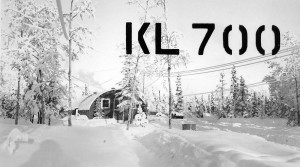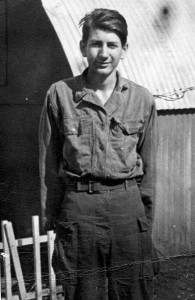The Ups and Downs of Sunspot Cycles
The good news is that the 10 meter band is wide open. The bad news is that I have low power (100 watts) on 10 meters and no antenna. Wait! Wait! The good news is that my vertical antenna for the 40 meter band loads up swell on 10 meters. And you can go around the world with low power on the ten meter band when it is open. All of a sudden, I get the feeling I have been here before!!!
In 1948 I was in the US Army Signal Corps, in Alaska and I got my ham radio license in April of that year. I got the call KL7OO. Since I was working at the Signal Corp Depot, I had access to all sorts of radio equipment. The station I put together had a Hallicrafters HT-9 transmitter and the receiver was a Hammarlund Super Pro . This gave me about 100 watts into a long wire antenna. The HT-9 was crystal controlled and used plug-in coils in little tin cans to change bands and frequency.
I started my ham radio activity on 40 meters CW and worked stations all over the Pacific and Asia. That winter I found that on the 10 meter band I could reach New York City almost any day of the week. I talked with NYC hams and had them phone my mother, in Brooklyn. I thought that ham radio would always be like this!
 Well, the eleven year sunspot cycle was at a peak when I was in Alaska and a few years later it was at a minimum. The 10 meter band was absolutely dead for about five years. And so it has been over the years — hot, dead, hot, dead. Then, last cycle the old man sun pulled out another card; a double minimum. Year after year there were no sunspots at all. 10 meters was dead and dead and dead.
Well, the eleven year sunspot cycle was at a peak when I was in Alaska and a few years later it was at a minimum. The 10 meter band was absolutely dead for about five years. And so it has been over the years — hot, dead, hot, dead. Then, last cycle the old man sun pulled out another card; a double minimum. Year after year there were no sunspots at all. 10 meters was dead and dead and dead.
So, now the good news is that the sunspots are back and 10 meters is showing some life. A few days ago I worked into Russia, Ukraine, Andorra, Croatia and a mess of Europeans. Happy days are here again!!!
Did you enjoy this post? Why not leave a comment below and continue the conversation, or subscribe to my feed and get articles like this delivered automatically to your feed reader.


Comments
No comments yet.
Sorry, the comment form is closed at this time.